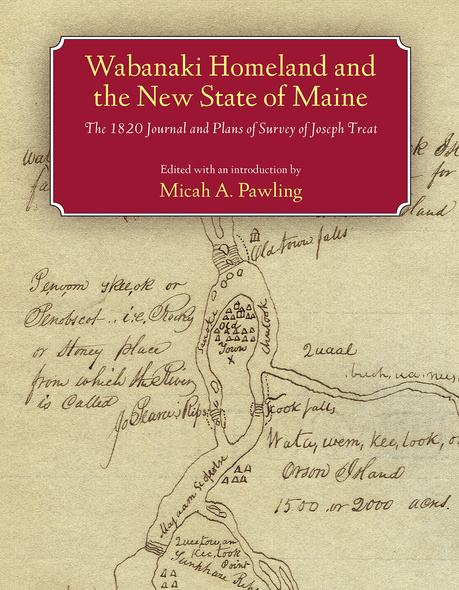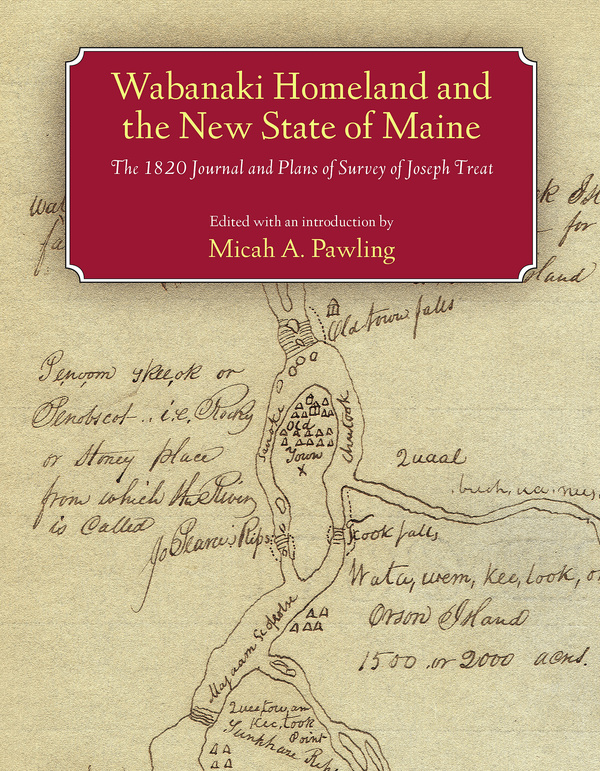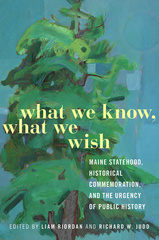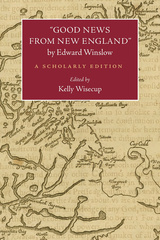Our shopping cart is currently down. To place an order, please contact our distributor, UTP Distribution, directly at utpbooks@utpress.utoronto.ca.
Wabanaki Homeland and the New State of Maine
The 1820 Journal and Plans of Survey of Joseph Treat
Edited by Micah A. Pawling
University of Massachusetts Press
In late September 1820, hoping to lay claim to territory then under dispute between Great Britain and the United States, Governor William King of the newly founded state of Maine dispatched Major Joseph Treat to survey public lands on the Penobscot and Saint John Rivers. Traveling well beyond the limits of colonial settlement, Treat relied heavily on the cultural knowledge and expertise of John Neptune, lieutenant governor of the Penobscot tribe, to guide him across the Wabanaki homeland. Along the way Treat recorded his daily experiences in a journal and drew detailed maps, documenting the interactions of the Wabanaki peoples with the land and space they knew as home.
Edited, annotated, and with an introduction by Micah Pawling, this volume includes a complete transcription of Treat's journal, reproductions of dozens of hand-drawn maps, and records pertaining to the 1820 treaty between the Penobscot Nation and the governing authorities of Maine. As Pawling points out, Treat's journal offers more than the observations of a state agent conducting a survey. It re-creates a dialogue between Euro-Americans and Native peoples, showing how different perceptions of the land were negotiated and disseminated, and exposing the tensions that surfaced when assumptions and expectations clashed. In large part because of Neptune's influence, the maps, in addition to detailing the location of Wabanaki settlements, reflect a river-oriented Native perspective that would later serve as a key to Euro-American access to the region's interior.
The groundwork for cooperation between Treat and Neptune had been laid during the 1820 treaty negotiations, in which both men participated and which were successfully concluded just over a month before their expedition departed from Bangor, Maine. Despite conflicting interests and mutual suspicions, they were able to work together and cultivate a measure of trust as they traveled across northern Maine and western New Brunswick, mapping an old world together while envisioning its uncertain future.
Edited, annotated, and with an introduction by Micah Pawling, this volume includes a complete transcription of Treat's journal, reproductions of dozens of hand-drawn maps, and records pertaining to the 1820 treaty between the Penobscot Nation and the governing authorities of Maine. As Pawling points out, Treat's journal offers more than the observations of a state agent conducting a survey. It re-creates a dialogue between Euro-Americans and Native peoples, showing how different perceptions of the land were negotiated and disseminated, and exposing the tensions that surfaced when assumptions and expectations clashed. In large part because of Neptune's influence, the maps, in addition to detailing the location of Wabanaki settlements, reflect a river-oriented Native perspective that would later serve as a key to Euro-American access to the region's interior.
The groundwork for cooperation between Treat and Neptune had been laid during the 1820 treaty negotiations, in which both men participated and which were successfully concluded just over a month before their expedition departed from Bangor, Maine. Despite conflicting interests and mutual suspicions, they were able to work together and cultivate a measure of trust as they traveled across northern Maine and western New Brunswick, mapping an old world together while envisioning its uncertain future.
This book should find readers among ethnohistorians, historical geographers, cartographers, Wabanaki people, Maine history buffs, and others with an interest in the Penobscot Valley. Micah Pawling's introduction sets the local context but also points to its larger significance. It offers a window onto a Native world at a time of dramatic change and it gives depth and detail to, and alternative understandings and readings of, a landscape that is being contested and transferred. The original journal and maps, like the book itself, are the product of intercultural collaboration.'—Colin G. Calloway, author of The Scratch of a Pen: 1763 and the Transformation of America
'Highly recommend this book for anyone with an interest in surveying , biographies, American history, American geography, Native American culture, or Maine in particular. Wabanaki Homeland and the New State of Maine: The 1820 Journal and Plans of Survey of Joseph Treat provides a multi-faceted look at the complexities of human relations in the burgeoning United States and the important role the cartography played in both documenting and influencing historical events.'—Cartographic Perspectives
'We are indebted to Pawling for bringing this remarkable document to our attention and contextualizing it in such illuminating fashion.'—American Indian Culture and Research Journal
'The attractively produced volume under review – edited, annotated and introduced by Micah Pawling . . . makes a solid contribution to a growing body of journals, treaties, and captivity narratives that have been reprinted, annotated, and placed within the contents of the painstaking research and editorial work establishes once again the valuable and unexpected insights into Native American history, borderlands history, and environmental history that result from such multifaceted efforts to reinterpret documents. Micah Pawling, who saw the potential in Treat's survey, and the members of the Penobscot Indian Nation who contributed to this effort are to be commended.'—New England Quarterly
Micah A. Pawling is a Ph.D. candidate in history at the University of Maine.







